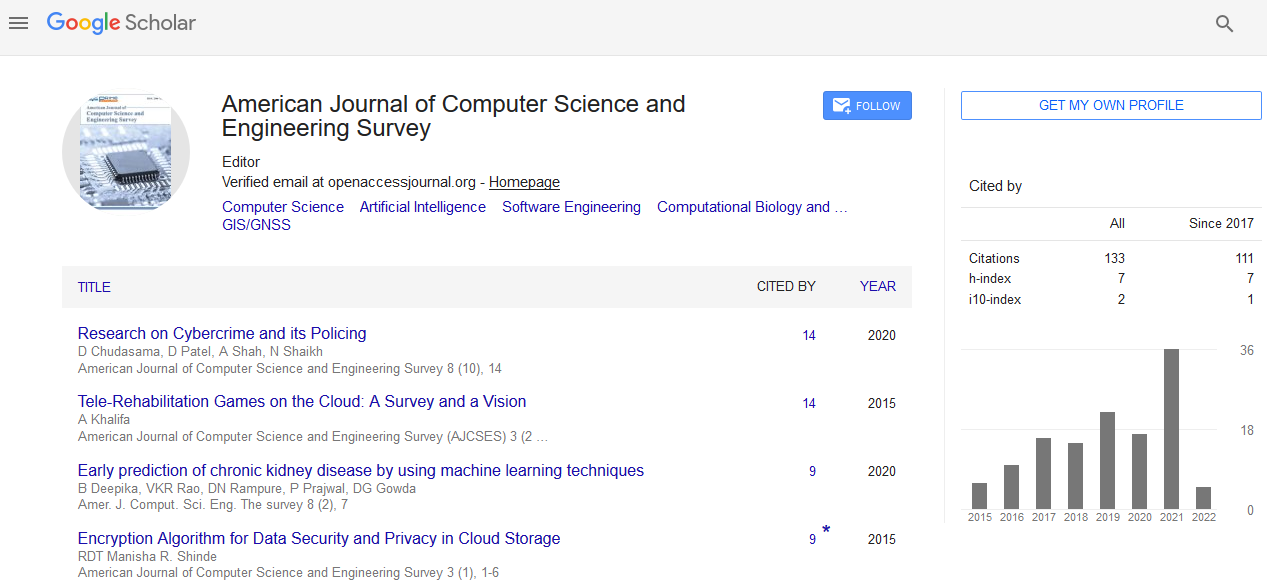Short Communication - (2023) Volume 11, Issue 4
Net Promoter Score: Understanding Customer Flexibility and Responsibilites
Loral Parein*
Department of Engineering, Yale University, USA
*Correspondence:
Loral Parein,
Department of Engineering, Yale University,
USA,
Email:
Received: 29-Nov-2023, Manuscript No. ipacses-23-18461 ;
Editor assigned: 01-Dec-2023, Pre QC No. ipacses-23-18461 (PQ);
Reviewed: 15-Dec-2023, QC No. ipacses-23-18461 ;
Revised: 20-Dec-2023, Manuscript No. ipacses-23-18461 (R);
Published:
27-Dec-2023, DOI: 10.36846/2349-7238.23.11.39
Introduction
The Net Promoter Score (NPS) has become a pivotal metric in
the realm of customer satisfaction and loyalty measurement.
Developed by Fred Reichheld and introduced in 2003 through
Bain & Company, the NPS methodology revolutionized how
businesses evaluate and understand customer sentiments. At
its core, the NPS centers on a straightforward question that
unlocks a wealth of insight: “How likely are you to recommend
our product/service to a friend or colleagues. Respondents
rate their likelihood of recommending the product or service
on a scale from 0 (least likely) to 10 (most likely). These loyal
customers are enthusiastic advocates of the brand, fostering
positive word-of-mouth and contributing to business growth.
These customers are generally satisfied but less likely to
exhibit strong loyalty or actively promote the brand. Unhappy
customers who are prone to spreading negative feedback,
potentially impacting the brand’s reputation. The Net Promoter
Score subtracts the percentage of detractors from the
percentage of promoters, resulting in a score that can range
from 100 (if all respondents are detractors) to 100.
Description
The NPS question is straightforward, offering a quick and
easy way to gauge customer sentiment across various
touchpoints. The NPS provides a clear numerical value,
facilitating performance tracking and comparison against
industry benchmarks. Feedback from detractors provides
actionable insights into areas requiring improvement, guiding
strategic initiatives for enhancing customer experience.
Engaging with promoters can lead to amplified brand
advocacy, fostering organic growth through positive referrals
and recommendations. Businesses can align their strategies
and operations to prioritize customer satisfaction, driving
improvements and loyalty. Prioritizing efforts based on NPS
insights allows organizations to allocate resources efficiently,
focusing on areas critical for enhancing customer loyalty. NPS
scores may vary across industries, necessitating a nuanced
understanding of sector-specific benchmarks and customer
expectations. Passives, although not actively detracting, might
not actively promote the brand. Strategies to convert them into
promoters are vital for growth. The Net Promoter Score stands
as a powerful tool for businesses aiming to comprehend and
bolster customer relationships. By concentrating on customer
loyalty and advocacy, organizations can foster growth, develop
customer-centric strategies, and consistently enhance their
offerings. However, while the NPS provides a concise metric,
interpreting and acting upon the insights gleaned from this
survey is imperative to unlocking its full potential in elevating
overall customer satisfaction and business success. The Net
Promoter Score (NPS) methodology offers numerous benefits
for businesses looking to understand, evaluate, and improve
customer satisfaction and loyalty. Here are some key benefits
of using the Net Promoter Score: The single-question format of
the NPS survey makes it easy for customers to respond, leading
to higher response rates and quick insights. The NPS provides
a numerical score, allowing businesses to track changes over
time and compare against industry benchmarks, enabling
better performance evaluation [1-4].
Conclusion
Categorizing customers into promoters, passives, and
detractors provides a clear understanding of areas that excel
and those needing improvement. Feedback from detractors
highlights specific pain points, guiding strategic decisions for
enhancing products, services, or customer experiences. The
NPS emphasizes customer loyalty as a critical factor in business
success, encouraging businesses to prioritize customer
satisfaction and retention. Engaging with promoters can lead to
increased brand advocacy, generating positive word-of-mouth
and referrals, contributing to organic growth. NPS insights allow
businesses to allocate resources more effectively, directing
efforts towards areas that significantly impact customer loyalty.
Acknowledgement
None.
Conflict Of Interest
The author has declared no conflict of interest.
References
- Carter SP, Greenberg K, Walker MS (2017) The impact of computer usage on academic performance: evidence from a randomized trial at the United States military academy. Econ Educ Rev. 95: 106-114.
[Crossref] [Google Scholar]
- Elliott-Dorans LR (2018) To ban or not to ban? The effect of permissive versus restrictive laptop policies on student outcomes and teaching evaluations. Comput Educ. 21(7):1251-1266.
[Crossref] [Google Scholar]
- Aguilar-Roca NM, Williams AE, O'Dowd DK (2012) The impact of laptop-free zones on student performance and attitudes in large lectures. Comput Educ. 58(B): 210-230.
[Crossref] [Google Scholar]
- Bellur S, Nowak KL, Hull KS (2015) Make it our time: In class multitaskers have lower academic performance. Comput Hum Behav. 111: 2475-2498.
[Crossref] [Google Scholar]
Citation: Parein L (2023) Net Promoter Score: Understanding Customer Flexibility and Responsibilites. Am J Comp Science. 11:39.
Copyright: © 2023 Parein L. This is an open-access article distributed under the terms of the Creative Commons Attribution License, which permits unrestricted use, distribution, and reproduction in any medium, provided the original author and source are credited.

